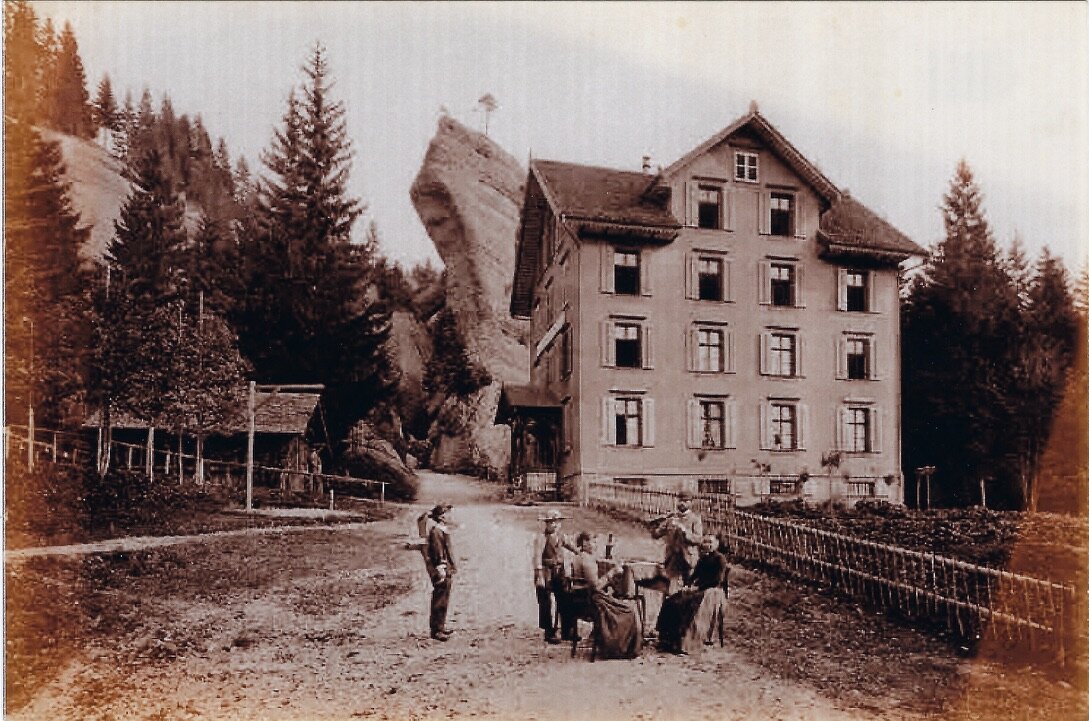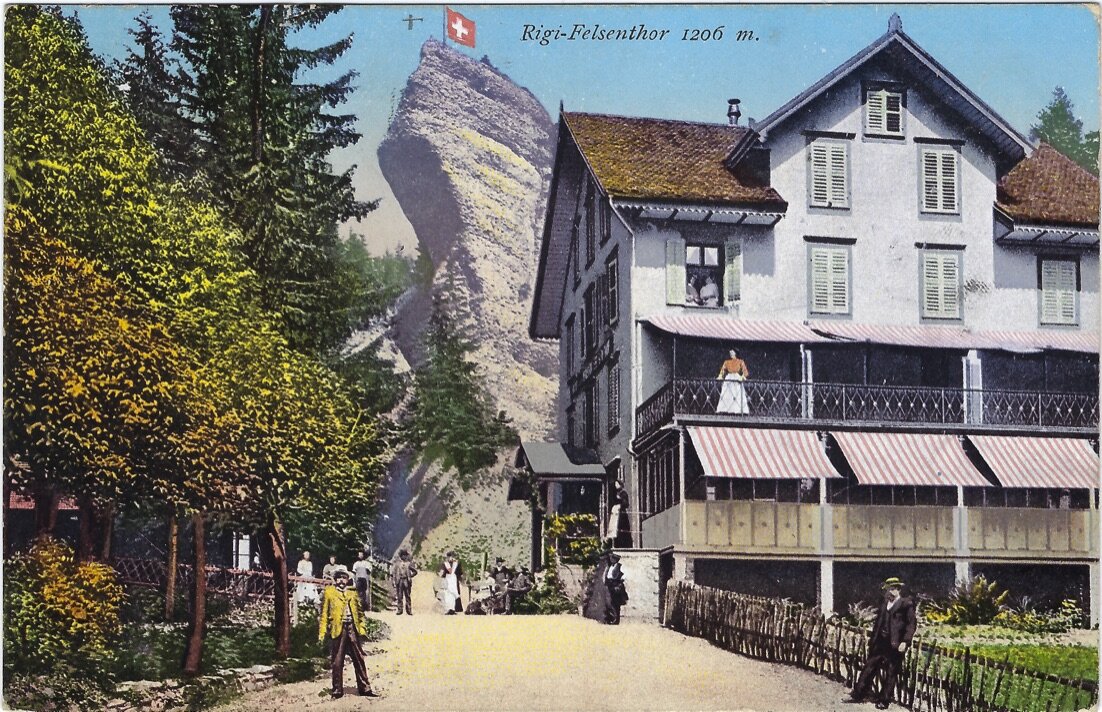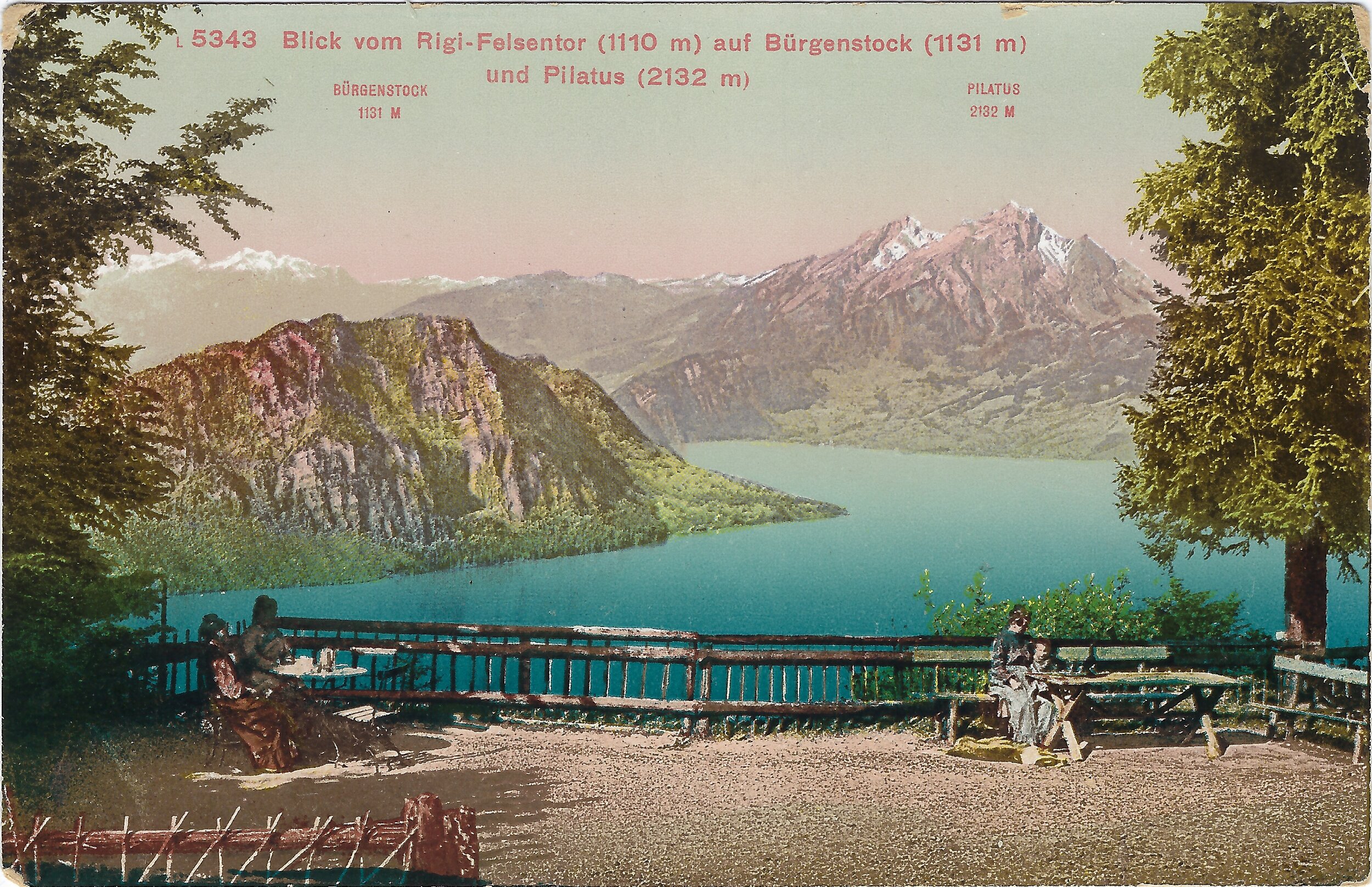History
Before the construction of the Vitznau-Rigi Railway, the route from Weggis via the Heiligkreuz Chapel to Kaltbad was the most frequently used footpath and riding path. At Hochstein (the so-called “Felsentor”) a restaurant for porters, guides, tourists as well as watering troughs for horses and mules was built.
In 1869, the newly built Hotel Felsentor was opened on this site: with 30 beds, a dining room and a ladies’ salon, a café 1st and 2nd class, as well as an annex with staff rooms and stables. Half way to Rigi-Kulm it was possible to rest, spend the night, feed the horses before continuing the ascent. (Romiti according to transmission means “rest in the middle”).
But shortly thereafter, with the opening of the ultra-modern first European rack railway from Vitznau to Rigi-Kulm, the economic basis of the hotel was withdrawn: Instead of travelling with horses and sedan chairs along the hiking trail, one now travelled comfortably with the new train directly to the summit. The hotel was sold in 1929 and was run as a children's home in the 1940s and 50s. Then it remained closed for a few years until in 1966 Claudine and Josef Hofmann-Siegrist acquired Felsentor. From 1983 the Felsentor was temporarily open as a mountain restaurant: from July to September on weekends and holidays.
In 1999 the property was acquired by the newly founded Felsentor Foundation, with the idea of creating a place of inner contemplation, silence and meditation in this unique landscape and historical location. The historic building was carefully renovated and now serves as the guest house of the seminar center. Following the tradition, the garden restaurant has been preserved for the guests and hikers. In 2004, the Zendo building in Japanese style was built as another architectural jewel, which, embedded in a meditative Zen garden, completes today’s site. The relative seclusion of the place, with good connections and accessibility via the Rigi Railway, has meanwhile changed from a disadvantage to an advantage that completely corresponds to the place in its present purpose.









